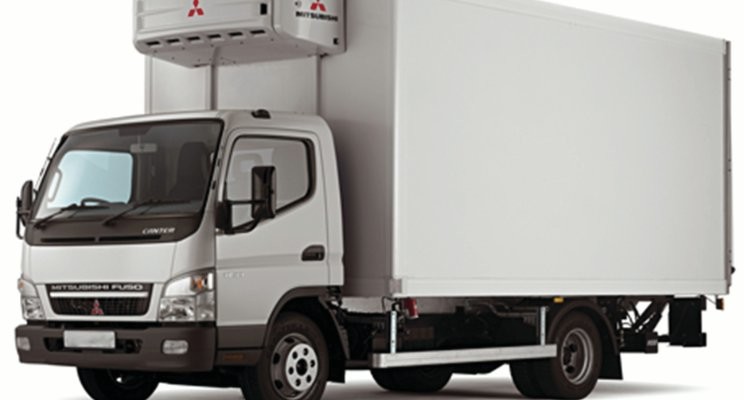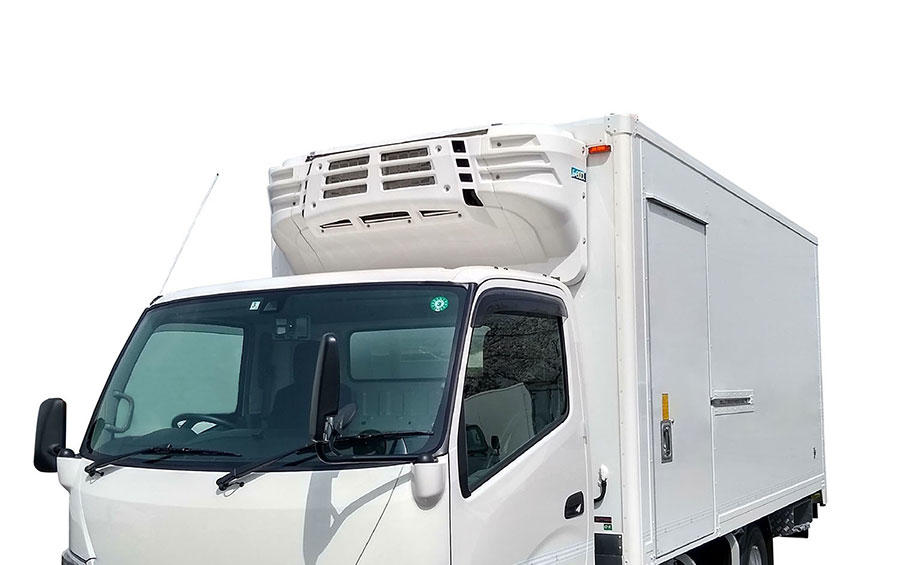A Comprehensive Summary of the Systems Behind Refrigerated Truck Transport and Its Role in Food Safety
Refrigerated vehicle transportation is essential in preserving food safety, utilizing sophisticated temperature control devices and insulation modern technologies to safeguard subject to spoiling items during transit. What effects do these elements have for the future of food safety and security?
Value of Refrigerated Transportation
Chilled transportation plays an important role in maintaining the integrity and safety and security of subject to spoiling products throughout the supply chain (refrigerated truck companies). This specific logistics system is essential for maintaining the high quality of food, including fresh produce, dairy products, meats, and fish and shellfish, which are susceptible to spoilage when subjected to temperature level variations. The capacity to maintain a regulated and regular setting makes sure that these products retain their dietary value, flavor, and safety for consumers
In addition, chilled transportation lessens the risks of foodborne ailments, which can develop from the development of harmful microorganisms in poorly kept items. By sticking to rigorous temperature level demands, businesses not only abide with regulative standards but additionally foster customer count on and brand reliability. The financial ramifications are significant; lowered wasting rates convert to lower losses for merchants and providers, adding to general profitability.
In addition, the boosting global need for high-quality and fresh food items even more stresses the significance of chilled transport. As supply chains come to be much more complicated and expand internationally, the demand for reliable temperature-controlled logistics proceeds to grow, underpinning the whole food distribution network and guaranteeing that subject to spoiling products reach their destinations securely and efficiently.
Temperature Level Control Devices
Maintaining ideal temperature level control is important in the transportation of subject to spoiling items, and a variety of systems are employed to achieve this objective. Chilled trucks use innovative refrigeration systems, primarily utilizing vapor compression modern technology, which flows refrigerant with evaporator and condenser coils to remove heat from the cargo area. This procedure ensures that the interior stays continually awesome, thus protecting the top quality and safety of the products being carried.
Additionally, trucks are outfitted with temperature level surveillance systems that give real-time data on the internal atmosphere. These systems typically include digital sensing units and alarm systems to sharp operators in situation of temperature level variations, enabling immediate corrective activities. Some cooled vehicles additionally include programmable temperature level setups, permitting exact control customized to certain kinds of cargo, such as fruits, drugs, or veggies.
Additionally, the use of pre-cooling strategies prior to packing improves the effectiveness of temperature control. By decreasing the freight area's temperature before the introduction of items, the threat of temperature level spikes during transportation is reduced. These mechanisms jointly add to a trusted chilly chain, important for keeping the stability and security of perishable food things throughout the transport process.
Insulation Technologies
Insulation technologies play a vital duty in boosting the efficiency of refrigerated vehicle transportation by reducing thermal exchange between the freight area and the outside setting. Efficient insulation is important for preserving the needed temperature for disposable products, therefore guaranteeing food safety and high quality throughout transportation.
Usual insulation products used in refrigerated trucks include polyurethane foam, polystyrene, and fiberglass, each providing varying levels of thermal resistance. Polyurethane foam, recognized for its superior insulating residential properties, is often applied as rigid panels that can be built to fit the truck's inside. Polystyrene supplies a light-weight option while still offering adequate thermal defense. Fiberglass, although much less typical, can be effective in particular applications because of its longevity and resistance to wetness.

Advanced Monitoring Solution
To guarantee the honesty of disposable goods throughout transport, progressed monitoring systems have actually become an essential development in the chilled truck sector - transport refrigeration company. These systems utilize a mix of sensors, information loggers, and real-time monitoring innovations to continually keep track of temperature level, humidity, and general freight conditions throughout the trip. By providing immediate responses on environmental variables, these systems enable punctual corrective actions, consequently safeguarding product top quality
Modern keeping an eye on systems are outfitted with cordless connection, enabling smooth information transmission to logistical hubs and stakeholders. This connectivity assists transport refrigeration companies in remote surveillance, which is vital for keeping compliance with industry policies and criteria. Alerts can be produced in real-time, notifying operators of any kind of deviations from pre-set thresholds, hence lessening the risk of wasting.
Additionally, the assimilation of sophisticated analytics and artificial intelligence formulas enhances anticipating capacities, enabling far better preparation and risk analysis. Historic information accumulated from these systems can inform future transportation strategies, optimizing paths and decreasing prospective risks. In general, the implementation of sophisticated tracking systems represents a considerable innovation in the chilled transportation market, strengthening the commitment to protecting the quality and safety of perishable items throughout their trip.
Influence On Food Security Criteria
The integration of advanced monitoring systems in chilled vehicle transport has considerably influenced food safety and security criteria across the supply chain. These systems enable real-time tracking of temperature level, moisture, and other important criteria crucial for preserving the stability of subject to spoiling goods. By making sure that products stay within specified temperature level varieties during transportation, these technologies mitigate the danger of microbial growth and wasting, which are pivotal in food safety.

The fostering of information analytics also permits positive decision-making, enabling firms to determine possible problems prior to they intensify right into food security violations. Because of this, the consolidation of advanced surveillance systems not only improves operational performance however additionally fosters better accountability in the food supply chain. This advancement underscores the critical function of modern technology in raising food safety and security standards and making certain consumer self-confidence in the items they receive.
Conclusion
In conclusion, cooled vehicle transport is vital for keeping food safety with reliable temperature control, advanced insulation modern technologies, and continual monitoring systems. These systems function synergistically to maintain the quality of disposable products and lower the risk of foodborne diseases. Adherence to rigid food safety and security standards is achieved with the execution of these innovations, highlighting the critical duty of chilled transport in the food supply chain and its effect on public health and wellness.
Refrigerated vehicle transportation is indispensable in keeping food safety, utilizing advanced temperature control systems and insulation innovations to secure subject to spoiling items throughout transit - transport refrigeration company. Correct upkeep of insulation stability, consisting of routine checks for wear or damage, is also important to sustain the efficiency of refrigerated transportation systems and make certain conformity with food security policies
The integration of advanced surveillance systems in chilled vehicle transport has significantly affected food safety and security requirements across the supply chain.In verdict, chilled vehicle transport is essential for keeping food security with effective temperature level control, progressed insulation technologies, and continual surveillance systems. Adherence to rigid food safety standards is attained with the implementation of these innovations, highlighting the crucial duty of cooled transport in the food supply chain and its influence on public health and wellness.
Comments on “Top Transport Refrigeration Companies Using Advanced Cold Chain Solutions”